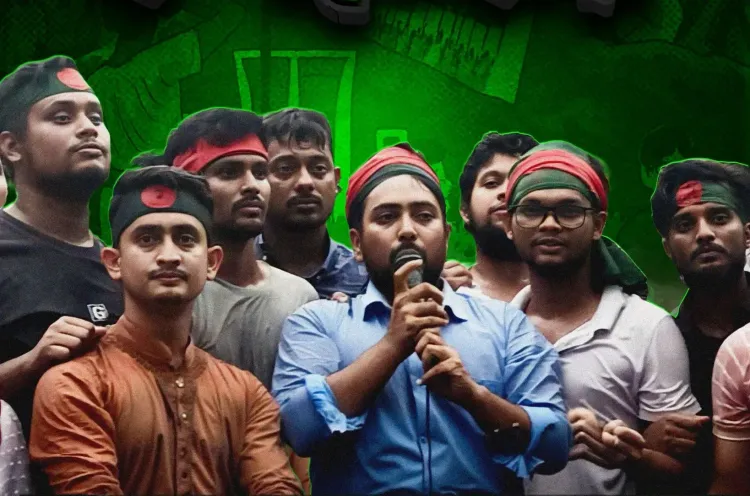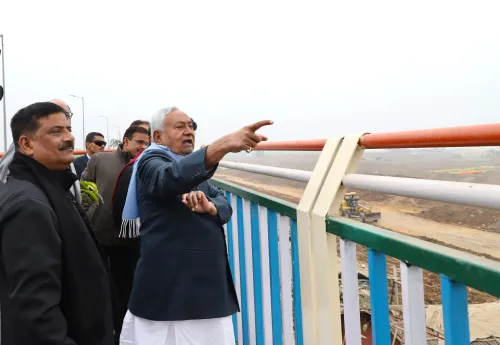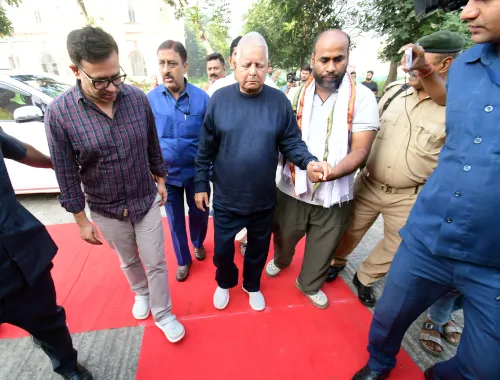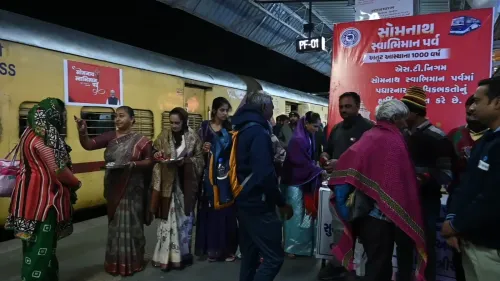Why is the Bangladesh NCP Hesitant to Sign the July Charter?

Synopsis
Key Takeaways
- NCP's Delay: The National Citizen Party is holding off on signing the July Charter until they can review the implementation order.
- Concerns Over Deception: Party leaders emphasize the importance of transparency to avoid political manipulation.
- Electoral Symbol: The NCP is advocating for the Shapla symbol in upcoming elections.
- Political Tensions: Ongoing disputes among parties reflect a complicated political landscape in Bangladesh.
- Future Implications: The decisions made now will shape the future of Bangladeshi politics as elections approach.
Dhaka, Oct 25 (NationPress) As political tensions escalate in Bangladesh, the National Citizen Party (NCP) announced on Saturday its decision to delay signing the July Charter until it evaluates the draft implementation order, according to local media.
After a meeting with representatives from the National Consensus Commission in Dhaka, NCP member secretary Akhter Hossen cautioned that no political pressure should convert the charter into a tool for deception.
“The commission has indicated that an order for executing the July Charter is in place, which we acknowledge as a step forward. However, we have yet to receive the specifics of this order, so we remain cautious. Signing the July charter would simply be a formality. We've communicated to the commission that the draft order and its implications need to be transparent to the public. Our decision on signing will follow our review,” quoted Hossen from the Bangladeshi daily Dhaka Tribune.
“One faction aims to abolish the July charter, while another seeks to obstruct it. We have stressed the importance of ensuring the charter does not become an instrument of deception under any external influence,” he claimed, refraining from naming specific parties.
Reaffirming the party’s request to use Shapla (water lily) as its electoral symbol, Hossen stated, “We intend to contest the elections under the Shapla symbol.”
In the meantime, amidst a boycott from several political factions, including the NCP and four leftist parties, the July Charter was signed on October 17 by Chief Advisor Muhammad Yunus, members of the National Consensus Commission, and leaders from various political groups.
Conversely, amid rising political unrest, the Bangladesh Nationalist Party (BNP) suggested conducting a referendum to implement the July National Charter in conjunction with national elections scheduled for February 2026, while both the radical Islamist party Jamaat-e-Islami and the NCP argued that it should occur before the elections.
Parties that previously collaborated with Yunus to displace the democratically-elected government of the Awami League, led by Sheikh Hasina, are currently embroiled in disputes over reform proposals.










